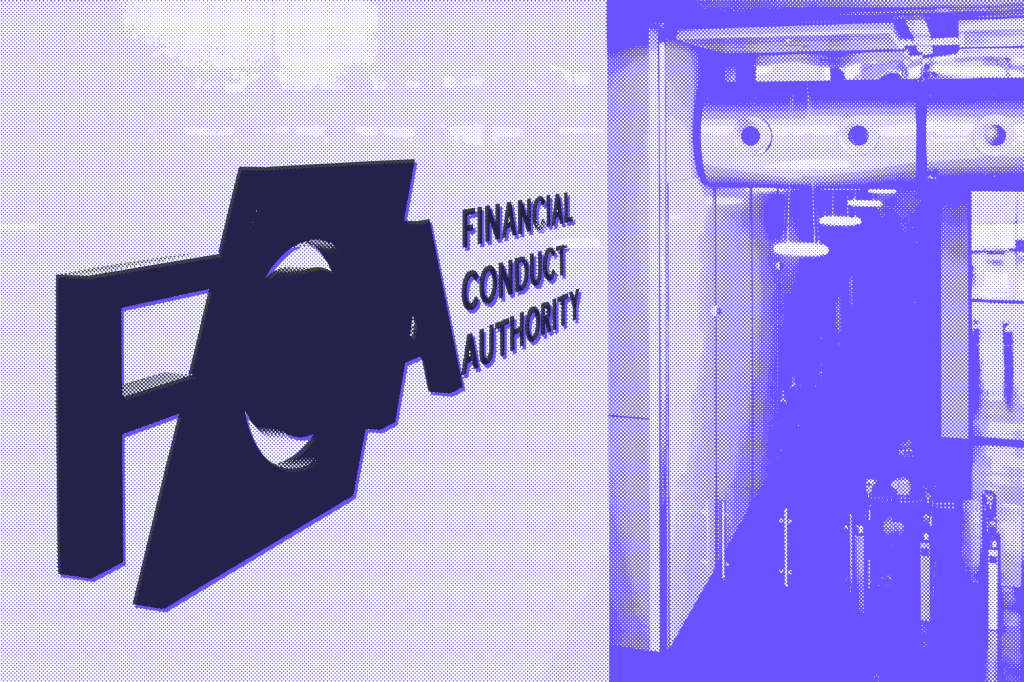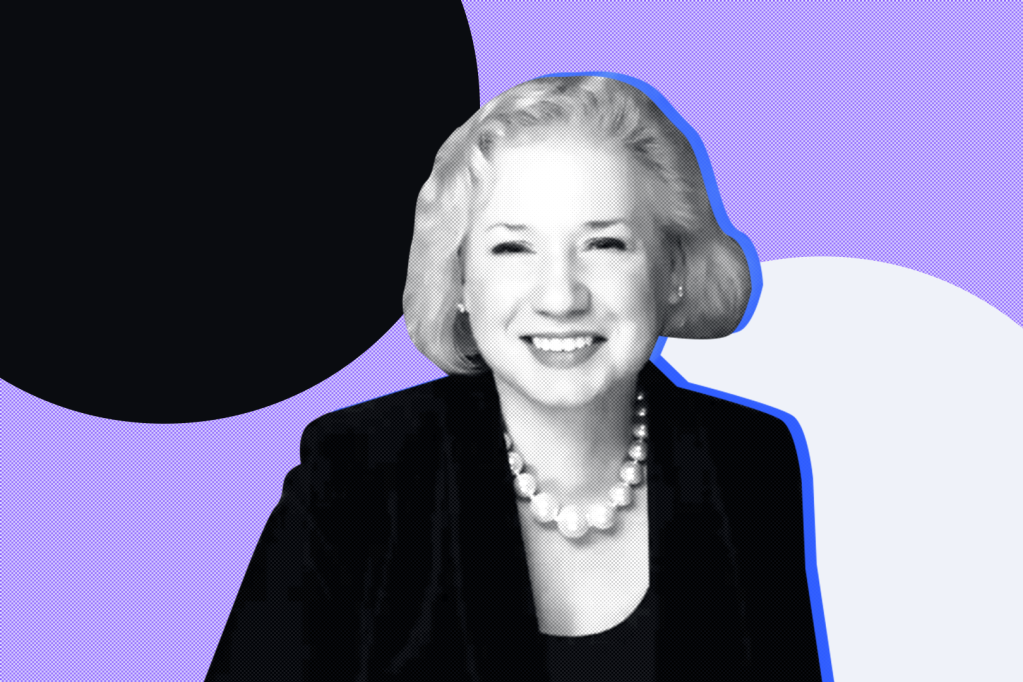This is a transcript of the podcast episode Emma Parry on conduct risk, whistleblowing and “speak-up” culture featuring a discussion between GRIP Commissioning Editor Jean Hurley and independent C-Suite & Board adviser Emma Parry.
[INTRO]
Jean Hurley: Today on The GRIP Podcast, we’re here to discuss conduct risk, whistleblowing and speak-up culture with Emma Parry. Emma, please introduce yourself and tell us a bit about your background.
Emma Parry: Great. Thank you for the invitation to join you today. It’s a pleasure to be here.
So I’ve worked in financial services for many years in various roles. I started in program management with Citigroup in Sydney, and then I moved to London where I joined JP Morgan Chase, again as a program manager.
And then I moved, well, I was headhunted actually, to work for HSBC. And there I worked again in various senior global roles from program management to business management, to client services, to my final role, which is probably most relevant to this discussion.
I was the global head of product governance and conduct risk in a role that spanned global banking markets. I now work as an independent adviser, focused on conduct, culture and risk.
Jean Hurley: Thank you. One of the things I’ve noticed in your bio, you’ve recently been involved as an expert witness in a court case at the High Court in the UK. Can you tell us a bit about that?
Emma Parry: Yes, absolutely. Yes, it was a fascinating case as well. So I was instructed as an expert witness, and the case related to contracts for difference, which are a high-risk product, leveraged product, not really suitable for retail clients.
Central to the case was the process by which the retail client was actually opted up to elective professional. This was under the MiFID II regulations at the time. And it was the process upon which I was asked to apply.
So the High Court case arose as the client made a significant trading loss. But via the opt up, they’d lost all their retail protections. The broker was keen to be paid the money. However, the client complained that the process was invalid, given the way in which the opt up had been performed.
As I mentioned, CFDs are high risk, they’re highly leveraged, which means they use debt to try and amplify returns. But it also means it amplifies the losses, which in this case meant the investor lost a lot of money. And also the underlying assets can also be quite volatile. So sometimes the currencies, but you’ll also find some brokers offering crypto as an underlying asset as well. So a high risk for a reason.
Jean Hurley: And what was the outcome?
Emma Parry: So the outcome was the judge decided to set aside the statutory amount. So basically, the broker didn’t get the money and actually the client didn’t get their money back either.
Jean Hurley: Yeah.
Emma Parry: So, not exactly a win win, but a win in that you didn’t have to pay the sizeable amount of the losses. But I think there’s some interesting lessons here, particularly around CFDs.
So in the UK, and indeed in other jurisdictions, regulators have imposed very stringent restrictions on how CFDs are sold and marketed to retail consumers. So firms need to understand and abide by the obligations set out by regulators.
So for example, the firms need to be effective in accurately onboarding and classifying their clients, they have to have a strong process in place for the opt up.
And in this case, interestingly, there was evidence of inducements being offered to that client for them to be opted up. And inducements aren’t allowed under FCA rules. So it’s a really interesting case. And fascinating because a lot of the evidence was on emails. And you’d think that people might think twice about committing to email certain types of inducement language, but apparently not.
Jean Hurley: Oh, I think that’s how a lot of people get caught up, don’t they?
Emma Parry: Yes.
Jean Hurley: Because you have to keep these records, don’t you for a lot of the regulators? And then WhatsApp messages as well.
Emma Parry: Oh, yes, the infamous WhatsApp messages and fines. Eye watering amounts of fines as well.
Jean Hurley: Yes, definitely. So all your experience, you know, in global investment banking, you told me in an earlier conversation about one of your colleagues at HSBC, who was actually arrested and convicted for wire fraud. And you’re saying, you wouldn’t normally expect, you know, that to happen to a colleague. Can you tell us anything about that?
Emma Parry: Yes, absolutely. It’s another fascinating case, which seems to be a track record of my career. Let me just explain the case a little bit as well. So Mark Johnson and I were working on implementing best execution policies and procedures within HSBC. He was working on the policy, liaising with the FCA to understand what their concerns were. They’d just done a thematic review around best execution and then found deficiencies. So he was working on the policy. And I had the dubious honour of trying to put into practice how to make best execution a reality from an implementation and governance standpoint.
So what happened was, this case actually dates back to 2011. And Mark was on a team of FX traders working for one of HSBC’s clients. And the client had sold a US entity and needed to convert the proceeds of that sale back into sterling. That’s the simple part of the case. The evidence presented at the trial included that HSBC had promised to drip feed the transaction to prevent a spike in sterling.
However, the client complained that they’d actually paid more for GBP after the traders had ramped up the rate. So the defence argued that pre-hedging, which is sort of the purchase of sterling before that the actual trade was actually or is permitted under the FX Global Code of Conduct and that the HSBC needed to buy sterling ahead of the trade to fill the client order.
And so a lot of the case was around the technicalities of trading and what’s allowed and so on and so forth. But actually what led to the imprisonment in fact, were the telephone recordings between Mark Johnson and the traders based in London and New York. Some of them, some of the transcripts are a bit fruity so I won’t read those out.
For example, the ones I can share with the listeners, Mark discussing how high the price of sterling could rise before the client would squeal, was one notable quote. And then the other at the completion of the order, Johnson stating “I think we got away with it.”
And again, we talk about the WhatsApp fines and why these recordings are so important is they become absolutely critical in the evidence when these types of trials come forward. I mean, having the trade data is one thing, but you need to be able to pull together the whole case. Oftentimes it’s the telephone recordings or Bloomberg chat messages or other sort of messaging that help to bring the case to life and will sway the jury one way or another.
Jean Hurley: Yes. And do you find that often in these recordings or messages that not only is there financial misconduct, but often non-financial misconduct, because usually the same person who’s going to do market manipulation isn’t always of a good character. Have you found that?
Emma Parry: Yes. And it’s interesting actually, because the FCA is now also focusing on non-financial misconduct. So discrimination, harassment, victimization, bullying are now firmly in the FCA’s line of sight. And that would be picked up through surveillance of e-comms channels, but also telephone calls or emails. So yes, absolutely. We veered from pure conduct risk, things like misselling, overcharging, insider trading, market manipulation, now also encompassing discrimination, harassment, victimization, bullying.
So we’ve got the full spectrum and there’s been a lot of academic research around misconduct and the fact that you may have a bad apple, but is it the barrel that the apple is in that is actually helping to foster a culture where misconduct is perhaps tolerated, if not overlooked or ignored?
Jean Hurley: Yes. It’ll be really interesting. I think in the Sexism and the City report, that came out a lot, didn’t it? That it was tolerated. So this is where whistleblowers come in very handy. And it leads us to a discussion about a colleague of yours, a friend, Pav Gill, who’s widely recognized as a whistleblower and he helped expose corruption and fraud in the now defunct German FinTech Wirecard.
Emma Parry: Yes.
Jean Hurley: Please tell us more.
Emma Parry: Oh yes, this is a fascinating case indeed. So yes, as you said, Pav was working for Wirecard. He was their legal counsel based in Asia Pacific. And what he uncovered was the movement of funds between different entities that tried to hide the fact that the entities in question weren’t actually profitable.
So this is a pure case of a sort of accountancy fraud, playing with the numbers to make the profits look legitimate, which they weren’t. And what happened eventually is, well, obviously he raised his concerns. They were escalated up to the board. Basically he was ignored, told to forget about it. And obviously he wasn’t going to let it die.
So he increasingly became the victim of retaliation, people shouting at him. But the worst thing, and Pav talks about this quite a lot in a very humble way, but he was told or the company was insisting that he would go on a business trip to Jakarta. And he couldn’t really work out what that reason was – there was no legitimate business reason.
And the more this sort of evolved as a discussion, the more concerned he became because the person who wanted him to go to Jakarta was the finance VP, a guy called Edo. And he, Edo, often bragged about how he married into a family of drug dealers in Indonesia.
Jean Hurley: Oh!
Emma Parry: Yes. Eventually Pav received two anonymous tip off calls from some colleagues in Munich. He still to this day doesn’t know who they were who called him, but they just said, I understand you’re being told to go on a business trip to Jakarta, but we would recommend you don’t go because you won’t come back.
Jean Hurley: Wow. Very scary indeed.
Emma Parry: Very, very scary. So not surprisingly, Pav refused to go on the trip. Four days later he was forced to resign. You know, it’s interesting actually, because the other thing that Pav also speaks about is that the authorities in Singapore and also Germany have barely acknowledged or even thanked him for his efforts in uncovering the fraud. And also they’ve not provided any protection from the top executives of Wirecard, several of whom are now fugitives and still at large. You know, so the story hasn’t quite finished yet.
The good news, I like to have a positive story as well, the good news is Pav is OK and he’s launched a whistleblowing solution called Confide. So he’s using his first-hand experience to help, hopefully improve the ways in which whistleblowing is handled within firms. And then also how those investigations can be carried out in a way with better audit trails and a bit of workflow as well.
Jean Hurley: Yeah. And support, as you said, from the regulators as well. Yeah, that’s really shocking. And it’s, you know, another example, Desiree Fixler, a former sustainability group officer at Deutsche Bank’s asset company, DWS, and she exposed greenwashing at the asset management company. And then what happened with her as well, they tried to ruin her reputation, didn’t they?
Emma Parry: They did, yes. She again, also escalated and was ignored. And then, yes, DWS leaked a story to Bloomberg in an attempt to control the narrative around what was going on. But I’ve got to share with you, I was doing a bit of reading over the weekend in preparation for our discussion today, and I came across a fact that I’d sort of forgotten about. But ironically, the ESG system used by DWS was actually incorrectly calibrated. And in June 2020, it gave Wirecard, it gave them the second highest ESG rating because of strong corporate governance. That’s how badly calibrated it was.
Jean Hurley: Oh, gosh.
Emma Parry: Absolutely astonishing.
Jean Hurley: It is, isn’t it? But it’s good that things are going in the right direction. I like to see. So Confide, can you tell us more about Confide?
Emma Parry: Yes, absolutely. So it’s got two parts to the functionality. So one is the whistleblowing capture capability. So that can be captured online, it could be telephone recording, and obviously it can translate languages. And it’s anonymous. So a whistleblower raises a case and they get a code. And that code is theirs, specific to their case. So that’s the first part. And the second part, which is a little different to a lot of other systems, is it enables the investigation to take place within the platform.
So instead of having to hunt around for emails, or to hunt around for voice recordings, or whatever else, it’s all within the system. And the workflow enables people who need to collaborate on the investigation to do so, again within the platform. So that could be HR, risk, legal, whomever.
Jean Hurley: Thank you. And do you think now there is more of a speak-up culture within companies and there is support? Or do you think there’s a long way to go?
Emma Parry: I do think there’s definitely more people wanting to speak up. I was reflecting on the #MeToo movement, because I think that’s something if you ask people about speaking up, #MeToo probably springs to mind, because in 2017 it went viral. And the #MeToo hashtag went absolutely viral. And of course, social media platforms enable you to easily share your story, to follow other people who may have suffered similar sorts of victimization as yourself. So it’s definitely a movement.
I had a look actually, #MeToo on Instagram has 3.2 million followers. I do think also ESG has given people a focal point that they can sort of corral around, particularly if they’re concerned about the environment, climate change, and frankly, who isn’t right now? But I think people are increasingly wanting to shine a light on misconduct. And I think this is the G in ESG. We hear a lot about the E, a little bit more about the S, very little about the G, but the governance piece is critical.
Jean Hurley: And I also have got a question about whistleblowing hotlines, whether you think at the moment they’re fit for purpose, or … because I think the FCA has come under a lot of criticism for their one, that is either not being used, or no one knows what happens once you’ve rung in.
Emma Parry: Oh yes, OK. So let me tackle the FCA whistleblowing first, because I think that’s an interesting one. So the FCA does publish statistics around whistleblowing cases that get escalated to it. And I had a look at those a while back, and I was quite surprised with the types of whistleblowing cases that are tabled to or escalated to the regulator.
Everything from concerns about culture, money laundering, fraud, it’s quite an eye-opener. I mean, obviously, they don’t give you the cases, but the numbers are in the hundreds. So it’s not a, you know, it’s not a small minority. There’s some quite interesting cases.
And they do give some case study examples of how they receive information and how they act on it. So it’s interesting, though, because obviously, in the UK, whistleblowers aren’t paid for the information, which differs from the US, where the SEC does pay whistleblowers for successful prosecutions.
So, I’m sorry, I should add in the US, the number of whistleblowing cases are in the thousands. So one has to ask, is it the hotline that’s the issue, or the fact that people aren’t being paid for the information?
But back to the second part of your question. I mean, the hotlines do work. But I think the challenge is it’s not so much the solutions, hotline, email, online reporting, but it’s whether employees feel confident and comfortable in using them.
And that’s where firms need to nurture a speak up culture. There’s something else I wanted to share with you, when I was talking to Pav recently, he said that the Wirecard hotline, whistleblowing hotline, went straight to the board. Members of whom were complicit in the fraud.
So it, you know, it’s little wonder that, you know, you can have the best technology, but if your, if your board is, is corrupt, or people are not encouraged to speak up, or, you know, are retaliated against for speaking up, then obviously, people won’t.
Jean Hurley: And do you think compensation, or paying for whistleblowing … do you agree with that? Do you think that’s what they should be doing in the UK as well? Because people do seem to lose their job. All the whistleblowers I’ve ever read about or met, they are now speakers, they’re not actually in their job, but they can’t seem to be recruited again to do the job they had, you know, if they’re in compliance or …
Emma Parry: Yes, I, I do think, I mean, let’s be honest, choosing to be a whistleblower, it’s not a, you know, a task to be taken lightly. To your point, very few people actually stay within the firms once they’ve blown the whistle on an issue.
So I think compensation probably would be helpful because to your point, if you blow the whistle, particularly within financial services, it’s such a closed, small world with everybody knowing one another, frankly, that you’re unlikely to get another job, which is really very, very sad.
So yes, I mean, Pav obviously is now, you know, running his own firm and promoting with whistleblowing platforms. Desiree is, she was doing some work with the FCA on ESG, unsurprisingly, and I think is doing some work in the training field as well. So yes, they’re doing completely different jobs. So compensation seems only fair if you’re having to reinvent your life afterwards. Yeah.
Jean Hurley: Yeah. And especially hearing, you know, threats as well, threats of violence that can go alongside it.
Emma Parry: One thing I wanted to just, I guess, reiterate was the … nurturing a speak-up culture and the importance of that. So we spoke about the need for hotlines and are they used and whether people feel confident to raise issues. And part of the challenge that firms need to get their head around and act upon is how they build that speak-up culture. What does it actually feel like, look like in practice? And some of the things that people should be thinking about is cognitive diversity.
So to what extent are differing views, differing backgrounds, different experiences, different age groups and demographics welcomed into the organization? And how are those voices heard and encouraged to speak up? So that’s one thing. And then the other thing is you can have the best whistleblowing or speak up process in the world.
But if you don’t listen to that information and then take action when you need to, then you’re failing in your corporate governance responsibilities, you’re also failing your employees as well. They’ve taken the time to raise an issue and put themselves out there as being a potential whistleblower, which as we’ve just spoken about, could mean retribution, even though that is actually illegal in a lot of jurisdictions, including in the UK, comes under the employment law.
So like I said, hotlines are one thing, but it’s the culture, it’s the question of whether employees feel confident if they raise an issue, something’s going to happen to address the issues that they’ve raised.
Jean Hurley: Thank you. It’s very brave, I think being a whistleblower is very brave. Because you’ve got a family and you’ve got your house and you’ve got a mortgage to pay and you’ve got to, you know, stand up and go against these companies.
Emma Parry: Absolutely. And, you know, the more I delve into these cases, the more horrified I become. There’s such awful retribution and just nastiness. The good thing is we’ve got people, you know, willing to talk about their experiences and shine a light on the misconduct that’s practically right in front of our eyes.
Jean Hurley: Thank you very much, Emma.
Emma Parry: Perfect. Excellent. My pleasure.













